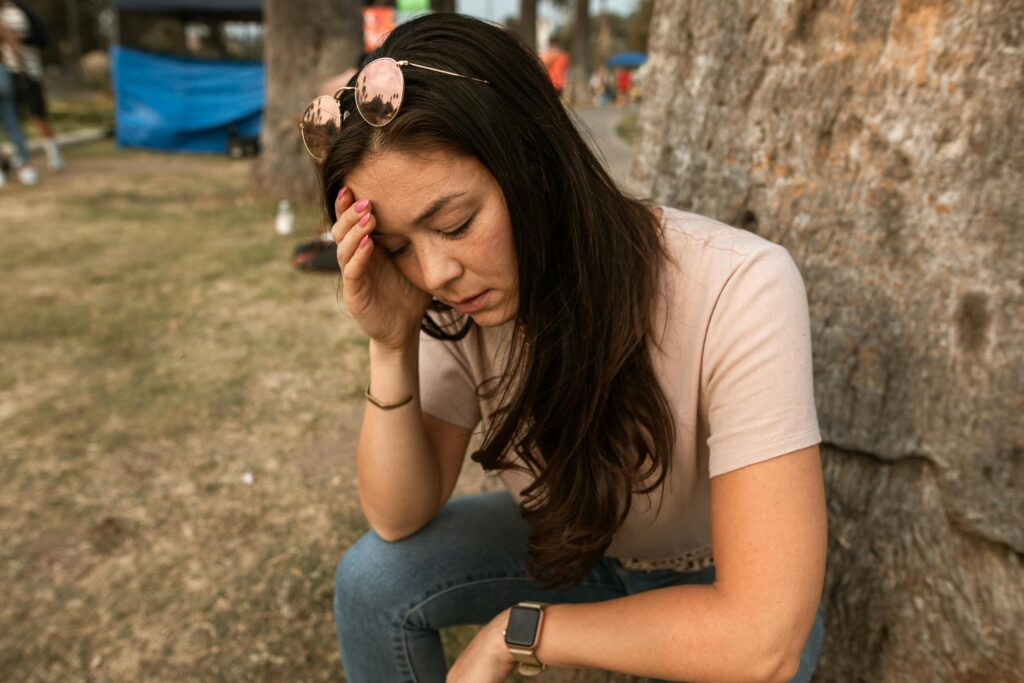
Depression is much more than occasional sadness—it’s a serious mental health condition that can profoundly affect how you feel, think, and manage daily life. It impacts both emotional and physical well-being, often reducing one’s overall quality of life.
At Willow Springs Healing Center, we offer compassionate, comprehensive support for individuals navigating depression. Our mission is to help each person discover hope and take meaningful steps toward healing.
Depression affects everyone differently, and it can appear in various forms. Below are some of the most common types, each with its own characteristics and challenges:
Recognizing which type of depression you’re experiencing is a crucial step in seeking the right support. Because each person’s experience with depression is unique, there’s no one-size-fits-all approach. At Willow Springs Healing Center, we’re committed to standing beside you on your path to healing and lasting recovery.

Depression doesn’t just influence your emotional state—it can deeply impact your body, thoughts, behaviors, and ability to engage with the world around you.
Although depression is a mental health condition, its effects are often felt throughout the body. One of the most common physical symptoms is persistent fatigue. Even after a full night’s rest, you may still feel drained and unmotivated. Simple tasks like taking a shower or making a meal can feel like monumental challenges.
Disruptions in sleep are also widespread. Some individuals may find it hard to fall or stay asleep, while others sleep excessively without feeling refreshed. Physical pain—such as headaches, muscle aches, gastrointestinal issues, or tension—can arise without a clear medical cause, often rooted in emotional distress rather than physical disease.
Depression can weaken the immune system, making it easier to get sick. It may also throw off your appetite—leading to overeating or loss of interest in food—which can result in noticeable weight changes and increase the risk of health conditions like heart disease or diabetes.
Over time, the emotional stress of depression may contribute to serious health concerns like high blood pressure or increased risk of stroke. This can create a vicious cycle: physical symptoms worsen the emotional burden, while depression itself makes it harder to take steps toward recovery.
Depression can cloud your mind and reshape how you perceive yourself and the world. It often triggers a cycle of negative thinking, leaving you feeling powerless, guilty, or hopeless—frequently without a clear reason. Activities that once brought pleasure may now feel dull or meaningless.
It can also impair cognitive abilities. Concentration, memory, and decision-making might become difficult, interfering with everyday responsibilities at home, work, or school.
In severe cases, depression may lead to thoughts of self-harm or suicide. Emotional pain can feel all-consuming, and some may experience intense sadness, numbness, or mood swings like irritability and frustration. These emotional shifts can strain relationships and further isolate the person suffering.
Many individuals begin to withdraw from others, convinced they are a burden or that no one could truly understand. Unfortunately, this social withdrawal often intensifies the symptoms, making recovery even more challenging.
Depression affects not only the individual experiencing it but also their relationships with others. When your emotional reserves are depleted, maintaining connections with friends, family, or coworkers can feel overwhelming. Canceling plans, avoiding texts, or skipping social events becomes more common, often deepening feelings of loneliness.
Loved ones might misinterpret this behavior as disinterest or coldness, unaware that it stems from emotional exhaustion. This misunderstanding can lead to hurt feelings, communication breakdowns, and strained or broken relationships.
In the workplace or academic settings, depression can impair focus, reduce productivity, and result in missed responsibilities, which may jeopardize job stability or academic success—adding another layer of emotional stress.
Even everyday conversations or minor disagreements can feel too difficult to manage, making it hard to express needs or resolve conflicts. This emotional disconnect often reinforces the sense of isolation.
The longer someone feels alone, the more difficult it can be to seek help. That’s why a strong, understanding support system—and access to compassionate care—is essential for healing and long-term recovery.

Depression doesn’t look the same for everyone. Its symptoms can affect nearly every part of a person’s life—physically, emotionally, and behaviorally. While some signs are easy to recognize, others can be subtle or mistaken for unrelated issues. Understanding the full range of depression’s effects is an essential step toward identifying when you—or someone close to you—might need help.
Depression often leaves visible marks on the body, not just the mind. These physical symptoms may linger even when medical treatment is provided, because their origin is emotional rather than physiological. Common physical signs include:
Depression can change the way a person acts and engages with the world. These changes often reflect a loss of interest or emotional detachment, and they can interfere with daily functioning. Common behavioral signs include:
Emotionally and mentally, depression can feel all-consuming. It distorts thought patterns, self-perception, and emotional stability, making even simple tasks feel overwhelming. Common psychological symptoms include:

There’s no one-size-fits-all solution when it comes to treating depression. Lasting recovery often involves a well-rounded, individualized approach that combines professional care, therapeutic support, healthy lifestyle changes, and meaningful relationships. Because depression affects everyone differently, treatment plans must be thoughtfully customized to address each person’s unique experiences and needs.
The good news? Depression is highly treatable. With the right blend of strategies, guidance, and support, individuals can move beyond the pain and rediscover peace, purpose, and joy in life.
Talk therapy is one of the most effective ways to manage and overcome depression. It offers a safe, nonjudgmental space to explore emotions, challenge harmful thought patterns, and build practical coping strategies. Different types of therapy may be used, depending on individual goals and symptoms:
For many people, medication plays an important role in alleviating depressive symptoms. Antidepressants work by adjusting brain chemistry, which can lead to improved mood, focus, and energy. Common classes of antidepressants include:
Finding the right medication may take time and adjustments, but under medical supervision, many individuals find lasting relief and improved emotional balance.
While not a substitute for professional care, simple lifestyle changes can greatly support the healing process. These habits help promote resilience and emotional well-being:
Support from others is vital in the recovery process. Whether it’s a listening ear or practical assistance, strong relationships can offer the encouragement needed to keep moving forward:
Some individuals benefit from integrating alternative therapies that nurture both mind and body alongside traditional treatment. These options can help deepen relaxation, expression, and overall healing:

If you or someone you love is facing the challenges of depression, know that you don’t have to go through it alone. At Willow Springs Healing Center, we offer compassionate, expert care through flexible outpatient programs at our Concord, MA location.
Our center is open 24/7, providing accessible support whenever you’re ready. Our treatment approach is designed to fit into your life—helping you heal while continuing to meet work, school, or family responsibilities. We focus not only on therapy but also on empowering clients to integrate recovery strategies into their everyday routines.
Don’t wait. Your journey to healing and lasting change can begin today. Contact us: